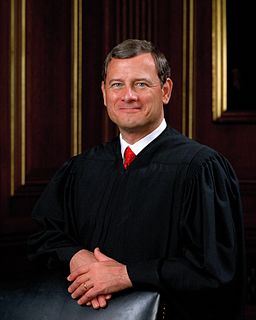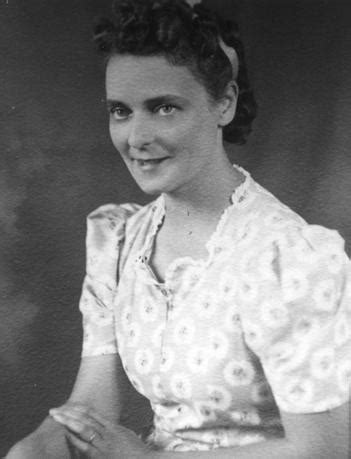A Quote by Lucy Maud Montgomery
…always felt the pain of her friends so keenly that she could not speak easy, fluent words of comforting. Besides, she remembered how well-meant speeches had hurt her in her own sorrow and was afraid.
Related Quotes
In this moment she felt that she had been robbed of an enormous number of valuable things, whether material or intangible: things lost or broken by her own fault, things she had forgotten and left in houses when she moved: books borrowed from her and not returned, journeys she had planned and had not made, words she had waited to hear spoken to her and had not heard, and the words she meant to answer with. . . .
She expected the pain, when it came. But she gasped at its sharpness; it was not like any pain she had felt before. He kissed her and slowed and would have stopped. But she laughed, and said that this one time she would consent to hurt, and bleed, at his touch. He smiled into her neck and kissed her again and she moved with him through the pain. The pain became a warmth that grew. Grew, and stopped her breath. And took her breath and her pain and her mind away from her body, so that there was nothing but her body and his body and the light and fire they made together.
She stared at herself in the mirror. Her eyes were dark, almost black, filled with pain. She'd let someone do that to her. She'd known all along she felt things too deeply. She became attached. She didn't want a lover who could walk away from her, because she could never do that - love someone completely and survive intact if her left her.
Her thoughts ran away to her girlhood with its passionate longing for adventure and she remembered the arms of men that had held her when adventure was a possible thing for her. Particularly she remembered one who had for a time been her lover and who in the moment of his passion had cried out to her more than a hundred times, saying the same words madly over and over: "You dear! You dear! You lovely dear!" The words, she thought, expressed something she would have liked to have achieved in life.
He was always part of her thoughts, and now that he was real, he was inescapably part of her life, but it was as she had told her mother: saying he was part of her or that they were more than friends sounded like love, but it seemed like loss as well. All the words she knew to describe what he was to her were from love stories and love songs, but those were not words anyone truly meant.
Before her marriage she had thought that she had love within her grasp; but since the happiness which she had expected this love to bring her hadn’t come, she supposed she must have been mistaken. And Emma tried to imagine just what was meant, in life, by the words “bliss,” “passion,” and “rapture” - words that had seemed so beautiful to her in books.
From the first time he'd met her, he'd sensed an air of contradiction about her. She was very much a woman, but still retained a waiflike quality. She could be brash, and at times deliberately suggestive, yet she was painfully shy. She was incredibly easy to get along with, yet she had few friends. She was a talented artist in her own right, but so self-conscious about her work that she rarely completed a piece and preferred to work with other people's art and ideas.
Sharp knives seemed to cut her delicate feet, yet she hardly felt them, so deep was the pain in her heart. She could not forget that this was the last night she would ever see the one for whom she had left her home and family, had given up her beautiful voice, and had day by day endured unending torment, of which he knew nothing at all. An eternal night awaited her.
And yet, standing behind her son, waiting for the traffic light change, she remembered how in the midst of it all there had been a time when she'd felt a loneliness so deep that once, not so many years ago, having a cavity filled, the dentist's gentle turning of her chin with his soft fingers had felt to her like a tender kindness of almost excruciating depth, and she had swallowed with a groan of longing, tears springing to her eyes.
She remembered that once, when she was a little girl, she had seen a pretty young woman with golden hair down to her knees in a long flowered dress, and had said to her, without thinking, "Are you a princess?" The girl had laughed very kindly at her and asked her what her name was. Blanche remembered going away from her, led by her mother's hand, thinking to herself that the girl really was a princess, but in disguise. And she had resolved that someday, she would dress as though she were a princess in disguise.
He took her in his arms right away. "I'm so sorry," he murmured in her ear. He rocked her, saying it over and over. But no matter how many times he said it, no matter how much she knew he meant it, the words stirred around in her ear but didn't get into her brain. Sometimes he could comfort her. Sometimes he said what she needed, but today he couldn't reach her. Nothing could.
Not that she didn't enjoy the holidays: but she always felt-and it was, perhaps, the measure of her peculiar happiness-a little relieved when they were over. Her normal life pleased her so well that she was half afraid to step out of its frame in case one day she should find herself unable to get back.
I've been afraid of being Cansrel,' she said aloud to her reflection. 'But I'm not Cansrel.' At her elbow, Musa said blandly, 'Any one of us could have told you that, Lady.' Fire looked at the captain of her guard and laughed, because she wasn't Cansrel- she wasn't anyone but herself. She had no one's path to follow; her path was her own to choose.
...she could express her soul with that voice, whenver I listened to her I felt my life meant more than mere biology...she could really hear, she understood structure and she could analyze exactly what it was about a piece of music that had to be rendered just so...she was a very emotional person, Annette. She brought that out in other people. After she died I don't think I ever really felt anything again.


































